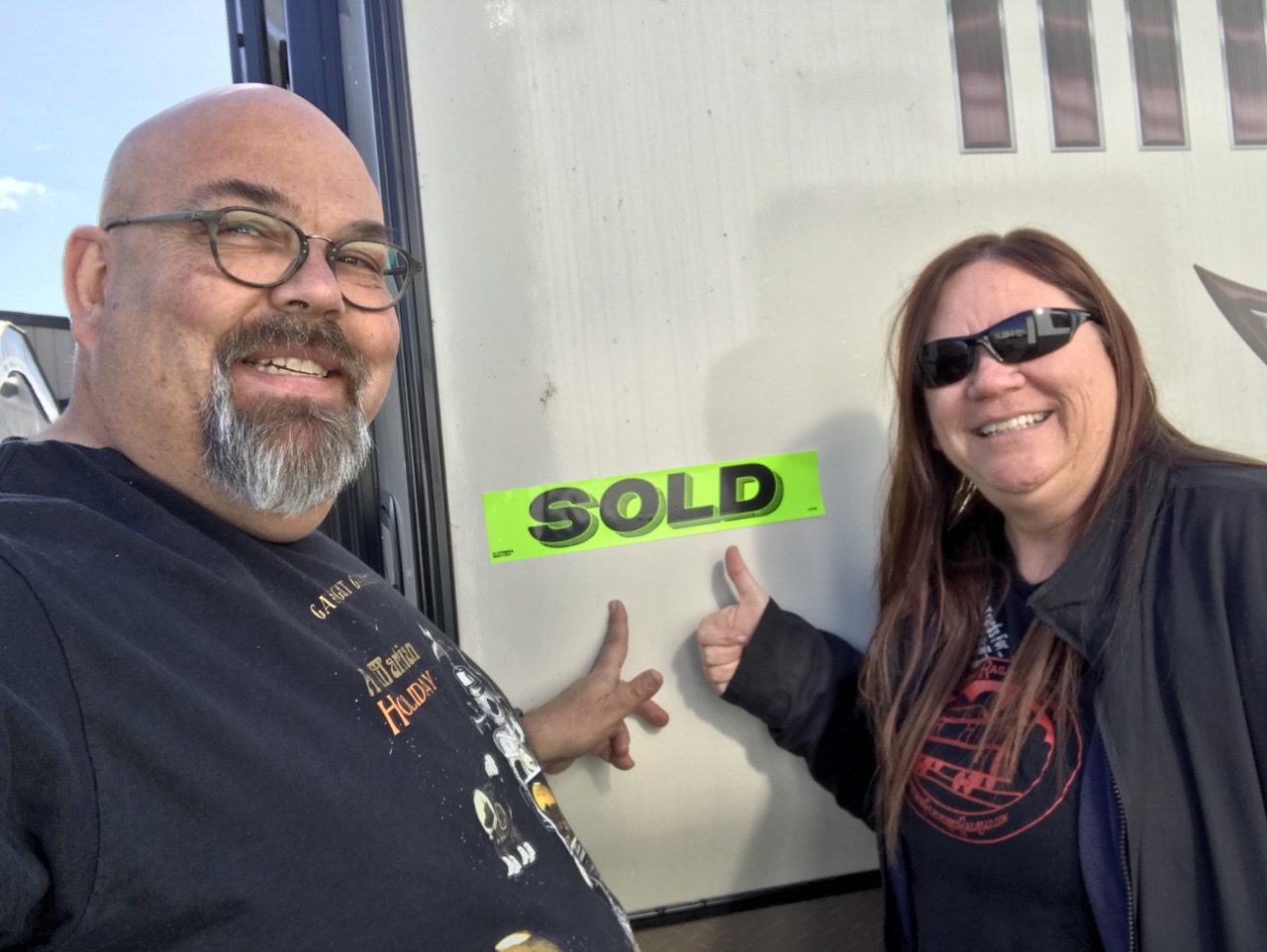Generator bans - what can you do?
Generator bans - what can you do?
Do you need a generator if you own an RV, travel trailer or fifth wheel? Can you get by without having a generator even if you’re boondocking for long periods of time? While the answer might be ‘no’ with the RV you have now, you might be able to completely forego a generator in the very near future.
Generator bans
California made a lot of noise within the RV industry by effectively banning small gasoline generators. The California generator ban (AB-1346) is legislation the California Air Resources Board (CARB) passed in October 2021. The purpose of AB-1346 is to end the sale of “small off-road engines,” including generators, in California.
The ban was directed toward the the small engines you’d find in lawn and garden service but, as is often the case with legislation, there was spill over into generators. Further, the ban seems to include gasoline-powered generators in motorhomes as well.
I believe this is still being sorted out.
Table of Contents
Why ban generators?
When you think of the number of people there are pooled into the larger areas in California studies by the California Air Resources Board found that all the small gasoline engines actually contributed more to pollution than vehicles do.
While modern vehicles are extremely clean from an emissions standpoint, small gasoline engines are not. The goal of the legislation is to basically eliminate this significant source of pollution.
Do you still need a generator?
The traditional thinking with RVers is that a generator was needed if you’re going to spend any time away from a traditional RV park. The biggest reason for this was the air conditioner, which is traditionally a power hog. If wish to take almost any RV built today and put together a system to run it on battery power, you’re talking a lot of battery power in a heavy and expensive system.
But as with many things our grandparents did, realities are a-changing.
Instead of looking at the solution as a bigger hammer to whack the nail that is the problem you have now, the better way to do things is to combine a number of solutions to solve the problem. And that’s just the trend I’m seeing right now in the RV industry.
Running the air conditioner on battery power
RV air conditioners are not and have not had to be efficient at all. That AC system up on the roof of your RV is a simple and quite inefficient device. Why?
In the past we simply showed up to a place with full hook-ups and used as much power as possible. We paid for it, after all.
Like the air conditioner that our grandparents had in their homes, the one on the roof of our RV had little consideration for efficiency. That is changing and the company that has made the biggest change, thus far, is German firm Truma.
Truma is an interesting operation and is coming on strong with some very different systems for RVs. They have already made a name for themselves with tankless RV water heaters and different styles of furnaces.
Now they’re in the air conditioner game.
Truma Aventa air conditioner and solar on a Winnebago Micro Minnie with FLX package
Reducing AC demand
Residential air conditioning systems have made significant strides recently and are now very, very efficient. When we had the bed and breakfast I remember a summer month where we got an electric bill for almost $1500 due to air conditioners. I then installed mini split-style air conditioners in the rooms and brought that bill down to just $400-600.
As with RV systems, my problem was consumption. And providing a lot of battery power to feed a hungry air conditioning old-fashioned system is not a good solution.
Truma isn’t the only one with an efficient system, Coleman also has units that consume less power which is the unit I have on my own RV. The consumption figures are similar.
But that Truma Aventa Eco 13.5 has a lot of features that make it a great system. It features multiple fan and compressor speeds to operate as efficiently as possible. There is a night mode in this unit so it won’t rattle you awake. And it has a dehumidification mode which may be all you need in certain climates.
The Aventa also has a nifty remote which is another plus. To me, this is the current air conditioner to beat but it’s not in widespread use. Yet. And you can bet that, as RV companies become interested in talking to Truma, competitors like Coleman and other RV AC manufacturers will step up their game further as well.
Unlike most rooftop air conditioners that offer only two speeds, the Aventa has three efficient, low amp speeds: low 9.4 amps AC; medium 9.6 amps AC; and high 10.5 amps AC.
As mentioned, the consumption figures for the Truma and the Coleman Quiet Cool unit on my own RV are very similar and I can run my Coleman unit for hours on the battery alone. Add some solar input, and that extends the time I can power the AC.
Further, there are 12 and 48 volt air conditioners that run on DC power and claim to be efficient. This is the type of unit used in the Embassy RV Traveler, for example.
The advanced solar available on some RVs including this 2022 Rockwood Mini Lite 2205S with the Power Package.
LED lighting
If you’ve purchased a newer RV you may have already been the beneficiary of LED lighting technology. LED lighting is one of those incredible break throughs where they consume radically less power, produce no real heat and work very well.
Lighting color is measured in something called color temperature. Modern LED lighting offers color temperatures that are more pleasing than the first ones we all came across. If you don’t like the lighting in your RV, there are so many options now to make changes and get lighting that is both very pleasing and also incredibly efficient.
What can you do?
Honestly, making a drastic change in you RV is certainly an option but not one that you’re likely to do. It’s not cheap and the payoff is questionable, quite frankly.
But if you’re shopping for a new RV, perhaps prioritize one that has been optimized better for off-grid performance. While these are not common, they are finding their way into the market.
Of course you could replace lighting in your RV with better LED units and that’s not a bad option at all. Depending on where you camp you can also optimize the situation you’re in to reduce or even eliminate the need for the RV air conditioner.
We have an article on keeping cool as the weather heats up
But the naysayers who denounce the fact that you can’t run the RV air conditioner on battery are thinking of the past.
Our new 2022 Rockwood Mini Lite 2205S specifically can run the air conditioner on battery power that’s been charged by the sun. I know. We’ve done it! The reason is that we have a more efficient air conditioner and 1,000 watts of solar along with 400 amp-hours of battery reserves.
In fact we spent all of last summer with that Rockwood trailer all over the midwest and never once thought that we would need a generator. And then we totaled that trailer.
Our new trailer is also a Rockwood Mini Lite 2205S with the same Power Package option but the folks at ABC Upfitters, who developed the system for Rockwood, have absolutely upped the game.
The 2022 model came with 720 watts of solar in four panels on the roof, each of those being 190 watt panels. This 2023 model has 1,000 watts of solar in five 200 watt panels. In other words, much more solar power.
What happens on cloudy days?
This section is more for those with towable RVs. Motorized models generally have a provision to recharge the batteries including some really well integrated charging systems in Class B vans. Class A and Class C motorhomes still have a long way to go to meet this capability which may explain some of the reasons why they are in a sales decline while Class B RVs are still white hot.
Let’s face it, if there ain’t no sun, there ain’t no fun, right? This is the argument that a lot of solar and battery detractors bring to the table and it’s absolutely legitimate. So what happens when the sun don’t shine?
Of course you could still bring a generator, but that’s not the point of this exercise.
One option is the Car Generator. This is a device that hooks to whatever you towed your RV with and allows you to use the vehicle’s engine (and alternator) to recharge your battery.
This device was invented in Canada and was intended to power critical systems in a house when the power went out. But, it turns out, it’s also really, really good for powering an RV. The advantage of this type of system is that you have all the advanced emissions systems inherent in modern vehicles, which is not true of portable gasoline engines.
If you do have an advanced battery system in your RV then this could recharge that system in a relatively short amount of time. How short? That depends on which of the several CarGenerator systems you choose and the capability of the alternator in your tow vehicle.
What can you do?
While I think a lot of people are going to worry about this, it really won’t be a big deal to a lot of campers. If you predominantly stay in RV parks, this is no big deal.
If your RV has a built-in generator today you should be fine.
Of course people love to hate on California but the state’s emissions standards typically are adopted by other states. The good news is, more and more RVs are going to be available with advanced power systems just because the new rules are going to create demand.
In fact I have a series of articles you can read on RVs that very specifically are available today with advanced solar and battery systems. We own one of these! Stay tuned, relax and know that the options you have today are only going to get better in the very near future, just based on demand.
Check out our daily RV reviews for stories this week on RVs that have advanced battery and solar systems available.






